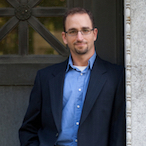An ad on the sidebar of my Facebook profile caught my eye: "What do you recycle?" it innocently asks. The link underneath, www.PlasticsMakeItPossible.com, is enough to make the stomach churn, but I figured that by clicking, the worst that would happen is the company would pay Facebook for a clickthrough, so I went ahead and checked out their contest.
Funded by the American Chemistry Council (ACC), an oil industry lobbying group, the Plastics Make It Possible campaign is a site that asks people how they're recycling and what they're recycling. The ACC allowed comments below the article, but they were clearly curated and carefully selected. Not one of them suggests that plastics are actually hard to recycle, which they are, and the well-intentioned people likely writing them may or may not understand the futility of recycling many plastics. And of course, my response was not published, making it clear that there's some sort of filter at play, and that that filter didn't appreciate my candidness.
The challenge is that plastics are artificial polymers that change in chemical composition when heated, making the process of turning them into another product more challenging. Unlike metal (and paper, to a lesser degree), which can be used again and again, plastic may get one additional life with proper recycling. The Plastics Make It Possible campaign is a clear example of greenwashing, giving the public the perception that they can use plastic and not leave a toxic legacy for their children.
According to the Daily Green, even the relatively easy to recycle #1 plastic bottles is only recycled 20% of the time. #1 plastic can be turned into fleeces, furniture, carpet materials, and straps (but ironically not new bottles in any sort of meaningful way). The bottom line is that plastics are here forever, and that recycling them is, at best, a mixed bag. Speaking of bags, only 5.2 percent of plastic bags actually get recycled, due to the poor economic outcome, as the aftermarket material simply doesn't have a high enough value to justify the expenditure on the recycling process.
For more information, PBS gives a handy recycling guide in this downloadable PDF, but the concept that "recycling is the answer" is simply code for "We need to keep selling you stuff that doesn't biodegrade, so please look over here and don't look at the bigger picture!" I don't know how the good people at the American Chemistry Council sleep at night. Maybe they really believe the misinformation they're selling the American public, but I can't imagine they're that naive.
-----------------------------------------------------------------------
Scott Cooney is the developer of a GBO Hawai'i, a new Triple Bottom Line board game, where players are impact investors helping Hawai'i transition away from oil and imported foods, and the author of Build a Green Small Business (McGraw-Hill).
Follow Scott's company, GreenBusinessOwner.com, on Twitter: Twitter.com/GreenBizOwner

Scott Cooney, Principal of GreenBusinessOwner.com and author of Build a Green Small Business: Profitable Ways to Become an Ecopreneur (McGraw-Hill, November 2008), is also a serial ecopreneur who has started and grown several green businesses and consulted several other green startups. He co-founded the ReDirect Guide, a green business directory, in Salt Lake City, UT. He greened his home in Salt Lake City, including xeriscaping, an organic orchard, extra natural fiber insulation, a 1.8kW solar PV array, on-demand hot water, energy star appliances, and natural paints. He is a vegetarian, an avid cyclist, ultimate frisbee player, and surfer, and currently lives in the sunny Mission district of San Francisco. Scott is working on his second book, a look at microeconomics in the green sector. In June 2010, Scott launched GreenBusinessOwner.com, a sustainability consulting firm dedicated to providing solutions to common business problems by leveraging the power of the triple bottom line. Focused exclusively on small business, GBO's mission is to facilitate the creation and success of small, green businesses.














